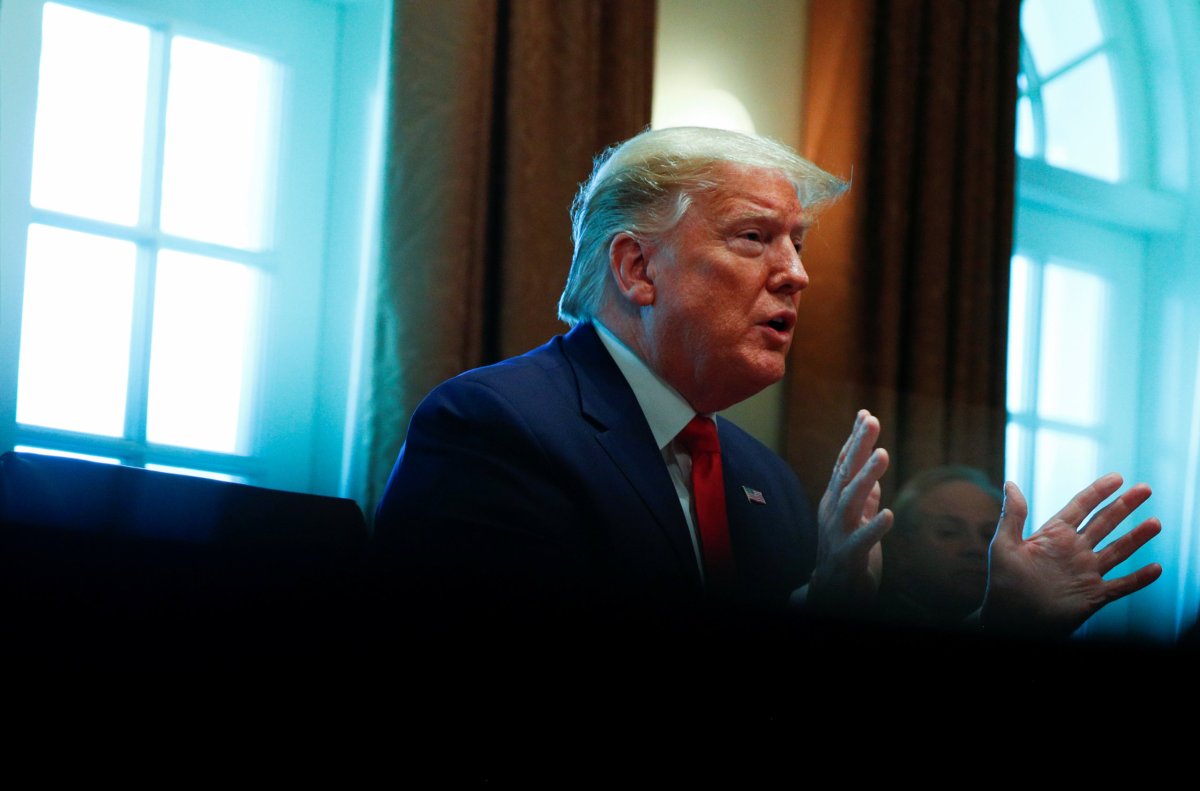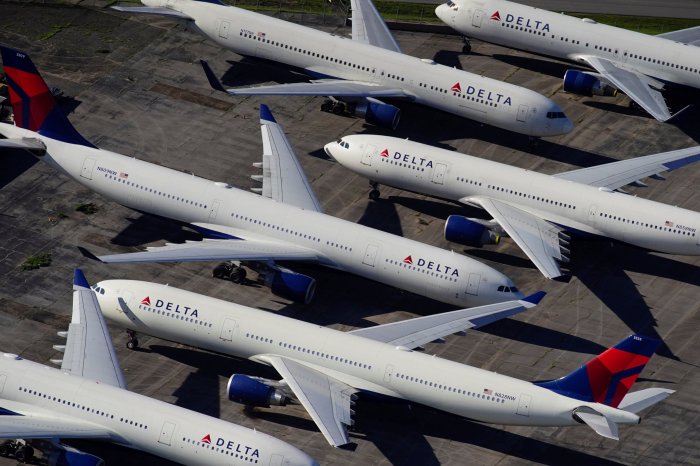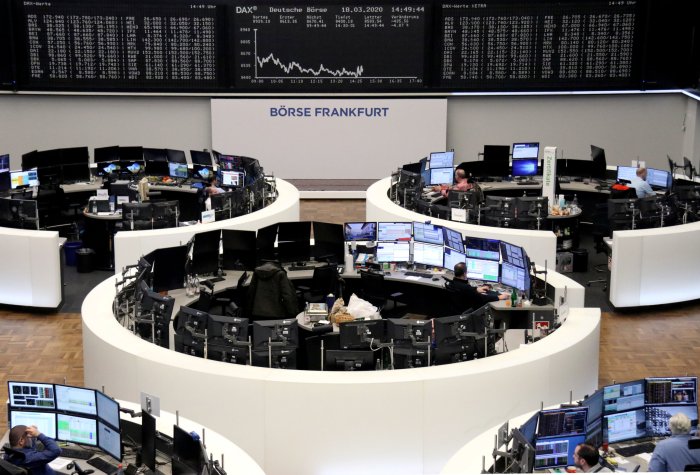(Reuters) – U.S. President Donald Trump has directed his cabinet to find ways to ease a cash crunch in the drilling industry after oil company executives told him in a Friday meeting it was among their top concerns, according to three sources briefed on the matter.
Trump hosted the White House meeting with executives from Exxon Mobil, Chevron Corp, Continental Resources and others as his government seeks to contain the fallout from an historic slump in oil prices that has threatened the industry with bankruptcies and layoffs.
Oil prices have dropped by about two-thirds this year as the coronavirus outbreak crushes fuel demand and major producers Saudi Arabia and Russia engage in a price war.
U.S. Energy Secretary Dan Brouillette told a broad industry conference call following Trump’s meeting with the oil executives that Trump had directed him to work with Treasury Secretary Steven Mnuchin to look for ways to immediately fix the energy industry’s “liquidity shock”, according to sources who listened in on the call.
The measures could include easing banking regulations to expand the oil industry’s access to credit, which has shrunk rapidly alongside the decline in oil prices, Brouillette said, according to the sources.
Brouillette also pointed out that the administration was helping the industry cope with a rapidly worsening storage glut in the United States by leasing out space in the nation’s emergency oil reserve, the sources said. Interior Secretary David Bernhardt, who was also on the call, said he was making federal lands available to drillers and considering a series of other options to help oil companies, but provided no details.
The briefing quashed rumors that the Trump administration was planning to announce measures to restrict U.S. crude oil production to help lift global prices, as it pushes Saudi Arabia, Russia and other major oil producers to do so.
Trump has highlighted his efforts to push Moscow and Riyadh to end their price war and tighten their taps, and Brouillette said on the call that the administration was not negotiating with those countries, only encouraging them to make a deal amongst themselves.
The energy industry had also expected the administration to offer some additional ways to help the industry weather the crisis, including waiving royalty payments from drillers for oil produced on federal lands, imposing an import tariff on foreign crude oil or easing shipping regulations. One of the sources called the outcome “a waste of time”.
After the meeting, Trump said his administration planned to make sure the U.S. oil industry stays in “good shape”.
Asked if he is considering tariffs on Saudi oil, Trump said: “Tariffs are a way of evening the score … Am I doing it now? No. Am I thinking about imposing it as of this moment? No. But if we’re not treated fairly it’s certainly a tool in the toolbox.”
He added that he expected Saudi Arabia and Russia to “settle their dispute very quickly.”
Trump had said on Thursday that Saudi Arabia and Russia had agreed to cut output by an unprecedented 10 million to 15 million barrels per day (bpd), representing 10% to 15% of global supply, after he discussed the issue with their leaders. The countries did not confirm the plan, but said they would discuss ways to stabilize the market with other major world oil producers.
The United States in recent years has become the world’s biggest oil producer, at times putting its exports in competition with Russia and countries in the Organization of the Petroleum Exporting Countries.
The American Petroleum Institute, which represents the U.S. oil and gas industry, had asked Trump for regulatory relief to ensure steady supplies during the pandemic. The administration has since announced a temporary easing of environmental enforcement.
The API, many of whose members operate globally, has opposed the idea of an oil import tariff, which could hurt domestic refiners and complicate projects and business relationships across borders.
(Reporting by Timothy Gardner, Jeff Mason, Steve Holland and Diane Bartz in Washington; Jessica Resnick-Ault, Stephanie Kelly, and Jarrett Renshaw in New York; Writing by Richard Valdmanis; Editing by Richard Chang, Dan Grebler, Daniel Wallis and David Gregorio)
541241,”]























